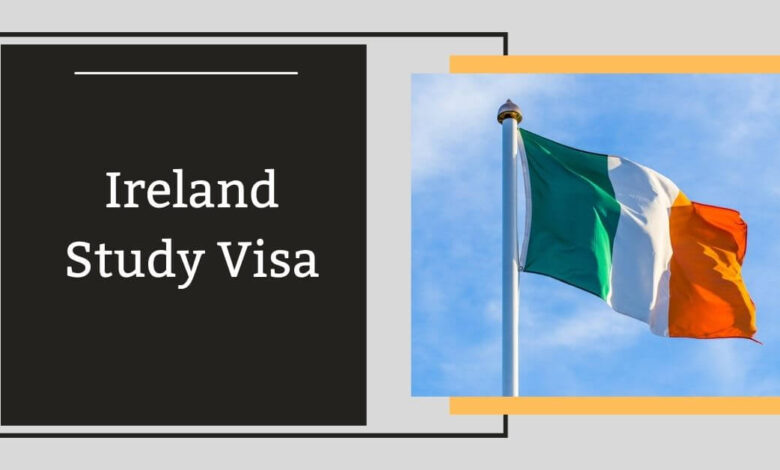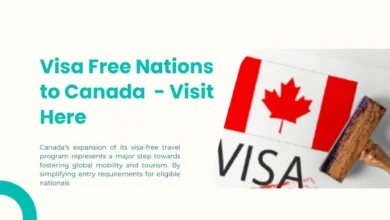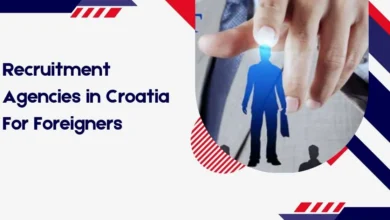Ireland Study Visa 2026 – Visa Requirements

The Irish Immigration Service has changed the paperwork that is needed for Study Visas for school stays in Ireland that last more than 90 days. This is a big change that all people who want to study abroad should be aware of. There are new rules in the Emerald Isle for people who want to learn English, take a foundation course, or start a full-fledged education program.
The newly released updated checklist lists stricter and more specific paperwork requirements. It puts a lot of weight on academic credentials, financial stability, and openness. That’s why it’s making waves in the world of foreign education, and all people who want to get a Study Visa (Type D) need to know about it.
Updated Ireland Study Visa Checklist
Currently, there are nine crucial steps in the visa application procedure, and even the smallest error could result in the rejection or delay of your application:
AVATS Application and Payment Proof
The AVATS online application must be filled out, printed, signed, and dated by the applicant. In addition, a recently completed checklist and evidence of payment for the VFS fee must be submitted concurrently.
Identity Verification
It is currently required to have a passport that is valid for at least 12 months after arrival in Ireland, as well as two photos (with precise requirements). Remember to attach copies of your prior passports (only the biographical and visa pages; blank pages are not needed).
Travel Purpose Clarification
A personal letter outlining the purpose of the trip, the names of any family members or friends who live in Ireland or the UK, and long-term study goals must be submitted by the applicant. These days, this personal statement is given a lot of weight when evaluating applications.
Unconditional Offer Letter
A Letter of Acceptance from an ILEP-listed institution serves as the foundation for your application. This has to contain
- Details of the course (minimum weekly tuition of 15 hours)
- Verification of fees paid
- Bringing up private health insurance, if provided by the organization
Proof of Fee Payment
Verifiable proof of tuition payment is essential. If the cost of your course is less than €6,000, you must pay in full up front. A minimum of €6,000 must be paid before applying for increased fees; any partial payments below this sum will be rejected.
Additionally, it was recently highlighted that your personal and institutional bank information must match bank transfer slips (EFTs) or receipts from validated student payment services such as PaytoStudy.
Applicants are required to submit:
This section is being examined more thoroughly than before to ensure that students meet the academic standards expected in Ireland.
- All academic transcripts and degree certificates
- English language proficiency test results (such as IELTS or TOEFL), unless the applicant’s previous education was entirely in English
Financial Sufficiency:
Applicants must:
- They should provide individual bank statements that clearly show they have enough money to live on.
- If they have a sponsor, they only need a signed sponsorship letter and confirmed bank account statements (investments in gold, cryptocurrencies, or chit funds are not permitted).
- To help authorities and applicants ensure that the needed amounts are properly understood and recorded, complete the Financial Summary Form (FSF), which is now a mandatory part of the application.
Health and Security
Applicants are required to have
- Private health insurance that satisfies Irish immigration authorities’ requirements
- Police Clearance Certificates (PCCs) from each of the five countries in which they have resided (with the exception of Ireland and the UK if they are providing biometric information).
Declaration of Past Visa Refusals
Any prior visa denials from any nation must be properly disclosed by applicants. Copies of the rejection letters are part of this. A permanent ban from applying in the future may result from failing to disclose prior rejections.
Final Checklist Must Now Be Signed at VFS
Applicants must affirm that they are aware that the decision about their visa will be made solely on the basis of the papers they have submitted. There is no opportunity for speculation or missing documents because both the applicant and the visa officer must sign.
Why This Matters Now:
The updated checklist is designed to promote:
- Greater transparency in the student visa application process
- Stronger safeguards against fraud and incomplete applications
But it also implies that students need to be thorough and ready, especially for the Septemberintake.
These days, even minor mistakes can result in visa rejection and jeopardize your prospects of studying in Ireland. Examples include failing to submit a Police Clearance Certificate (PCC), using an expired passport, or missing financial information.
Who Should Apply Under These New Rules?
These updated requirements apply to:
- Irish students enrolled full-time in bachelor’s, master’s, or doctoral programs
- Candidates enrolled in English language courses that are longer than 25 weeks
- Irish students enrolled in professional certification programs or foundation courses
Conclusion:
The Irish Study Visa Checklist represents a major change toward more stringent, open, and safe application procedures. Students today need to prepare more than ever before, with a focus on confirmed tuition payments, academic integrity, financial sufficiency, and compliance with health and security regulations. To avoid disappointment, it is imperative that anyone aiming for the September intake comprehend and fulfill these standards.
Your entire academic plan could be derailed by small mistakes like an out-of-date passport, a missing PCC, or ambiguous fee payments. Therefore, double-check all of your documents and only submit after your application is completely finished.
Frequently Asked Questions:
Who does this updated study visa checklist apply to?
All overseas students seeking long-term (Type D) study visas to Ireland are covered by it, including those studying foundation or professional programs, English language courses lasting more than 25 weeks, bachelor’s, master’s, and doctoral degrees.
What is the AVATS system?
AVATS is the online Irish visa application system. Applicants must complete the AVATS form, print it, sign it, and include proof of payment when submitting their documents.
Can I work in Ireland with a study visa?
Yes, international students can work part-time up to 20 hours per week during term and 40 hours during holidays.




